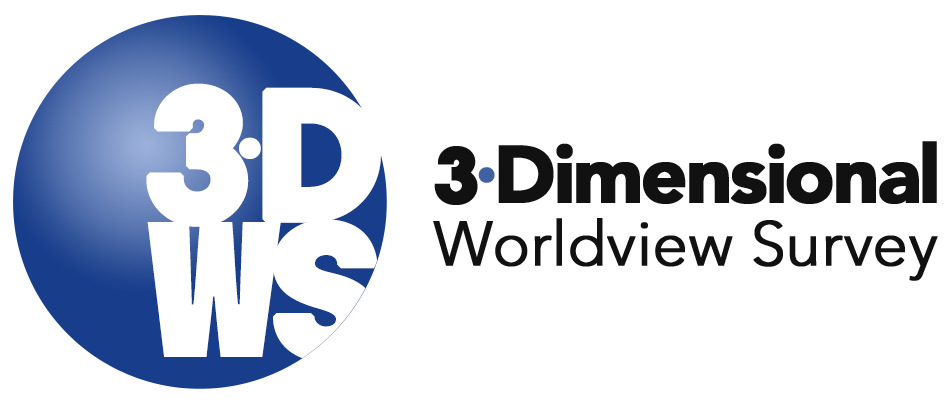What Is a Worldview?
January 3, 2023
Katherine Schultz
Welcome to the 3-Dimensional Worldview blog. I’m so eager to share ideas, resources, and opportunities with leaders in Christian organizations who want their students to develop a mature biblical worldview. Let’s start with the basics: What is a worldview?
Worldview is more than your beliefs
Many people believe that a worldview is all about what they believe. If they are Christians, then it has to do with what they believe about Jesus, God, the Bible, and some other religious ideas. They know they should have a biblical worldview, but they focus their attention on what they think or believe, and because of that, they miss some very significant aspects of worldview.
What is a worldview?
A worldview is more than just ideas, thoughts, and beliefs. James W. Sire says, “A worldview is a commitment, a fundamental orientation of the heart, that can be expressed as a story or in a set of presuppositions (assumptions which may be true, partially true, or entirely false) which we hold (consciously or subconsciously, consistently or inconsistently) about the basic constitution of reality, and that provides the foundation on which we live and move and have our being.” So a worldview is more than a framework of assumptions. In fact, Sire says that while a worldview is propositional and includes a person’s beliefs, it is also deeply involves a person’s behaviors, and also what Sire called “heart-orientation.” Worldview is, in fact, a 3-dimensional concept that involves beliefs, behaviors, and attitudes.
What do beliefs have to do with worldview?
The most common understanding of worldview includes our beliefs, knowledge, and viewpoints. Some people only think of these beliefs as religious ideas, but worldview really is about all our beliefs, not just our religious beliefs. It touches everything we experience or think about. It helps us answer questions like Where did we come from? Is there a God, and what is God like? What happens after we die? What is the meaning of history? How can we know right from wrong? A worldview includes beliefs about everything: history, politics, nature, family, education, government, society, ethics, money, physical reality, entertainment, beauty, music, medicine, and more. Our beliefs are one of the 3 dimensions of a worldview.
What do behaviors have to do with worldview?
Our actions are a natural result of what we believe, so it makes sense that our behaviors would be part of our worldview. But it’s actually a two-way street: what we do also has a huge influence on what we believe–if not now, then in the future. We continue to believe and act, and each of those things affects the other. So actions like prayer, worship, and Bible reading would affect our worldview and be a part of it. But our actions in daily life activities like spending time with people, how we spend our money, and what we do when we are alone also express our worldview. Our behaviors show what we really believe, including if we are hypocrites about what we say we believe. Our actions will show us–and others–what we really believe, and they are an additional dimension of worldview.
What do attitudes have to do with worldview?
Attitudes have a lot to do with worldview. They show the orientation of our heart. What we worship, what rituals we have in our daily lives, the way we approach everything is all an expression of our worldview. It includes our innermost desires, our wishes, our hopes, and our emotions. For the ancient Hebrews in particular, the idea of heart included all these things. So when we think of our worldview, these inner influences will affect what we believe and how we behave, making it the third dimension of a 3-dimensional worldview.
What do I do now?
Do you have a biblical worldview? Here’s a great place to start: “Examine yourself to see if you are in the faith” (2 Cor. 13:15). Spend time reflecting on your own beliefs, behaviors, and attitudes, and ask yourself how well they line up with the Bible.
And ask yourself some questions about your worldview–check out the free resource “10 Questions to Discover Your Worldview” below.





